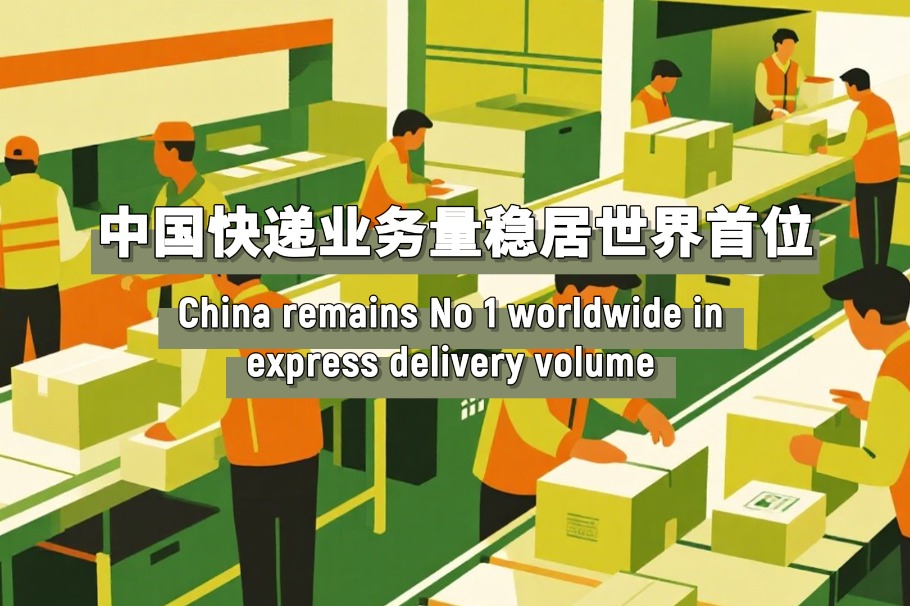Removal of QFII caps to lift fund flows


Reforms to help attract long-term investors, increase global interest in A-share market
Foreign capital flows into China's A-share market are set to increase once caps on the quota management under the Qualified Foreign Institutional Investor program are abolished, thanks to the growing interest from overseas investors, experts said.
The comments came after Pan Gongsheng, deputy governor of the People's Bank of China, said on Thursday that the country will ease and even cancel quota management for the QFII program, which enables licensed international investors to participate in mainland stock exchanges through a specified quota.
China will reform the QFII program and the yuan-denominated RQFII program, enlarging investment scopes of the programs, said Pan, who is also head of the State Administration of Foreign Exchange, the country's top foreign exchange regulator.
The current total quota under the QFII program is $300 billion, which was doubled by the SAFE in January. By the end of May, the administration had granted foreign institutional investors $105.8 billion of the quota, data from the SAFE showed.
"There is relatively large room for the growth of overseas investors in China's capital market as their proportion is still low," said Pan, adding that China will continue to advance two-way capital market opening-up.
Xue Yi, a professor of finance at the University of International Business and Economics in Beijing, said the easing of QFII quota management will help channel more foreign capital into the A-share market.
"The Chinese stock market is offering great investment opportunity to global investors, given the market's low valuation and country's steady economic growth prospects," Xue said.
Foreign investors have the motivation to invest in the A-share market to grasp high returns associated with fairly rapid economic growth and to diversify their portfolios, Wei Zhen, executive director and director of China research with global index provider MSCI, said in May.
At present, global investors are still underweighted on the A-share market, but the situation is gradually changing as global benchmarks are increasingly including A shares, Wei said.
Some foreign investors have even begun to go ahead with benchmark adjustments and proactively explore opportunities in the market, Wei said.
Analysts expect the A-share market to attract record high foreign capital of about 600 billion yuan ($86.7 billion) or more this year, after its inclusion in major global benchmarks like MSCI, FTSE Russell and S&P Dow Jones.
Zhu Ning, deputy dean of the National Institute of Financial Research at Tsinghua University, said two factors, however, may weaken attempts to boost foreign capital flows after the quota removal.
"Many foreign investors rely on stock connect mechanisms to invest in China, which could make the higher QFII quota less attractive to them," said Zhu, who is also a professor with the Shanghai Advanced Institute of Finance.
By the end of March, holdings of A shares via northbound trading under stock connects between mainland and Hong Kong bourses stood at 1.03 trillion yuan, accounting for 61.35 percent of the market's total foreign holdings, according to estimates from the Shenzhen-based China Merchants Securities. The remaining was investment via QFII and RQFII programs.
"The other uncertainty is that we do not know how foreign investors evaluate the current valuation levels of the A-share market," Zhu said, citing that foreign investors are more price-sensitive than domestic peers and tend to clip holdings after price rises while buying more amid market downtrend.
China released a host of financial opening-up measures last week, partly to attract more institutional, long-term investors into China's capital market.
Besides reforming the QFII and RQFII programs, the top securities regulator will soon unveil more capital market opening-up measures, according to Yi Huiman, chairman of the China Securities Regulatory Commission.
Specifically, the country plans to expand overseas investors' access to the exchange bond market and futures market, while facilitating the issuance of yuan-denominated "Panda Bonds" by overseas institutions in China, Yi said.
Xinhua contributed to this story.




































